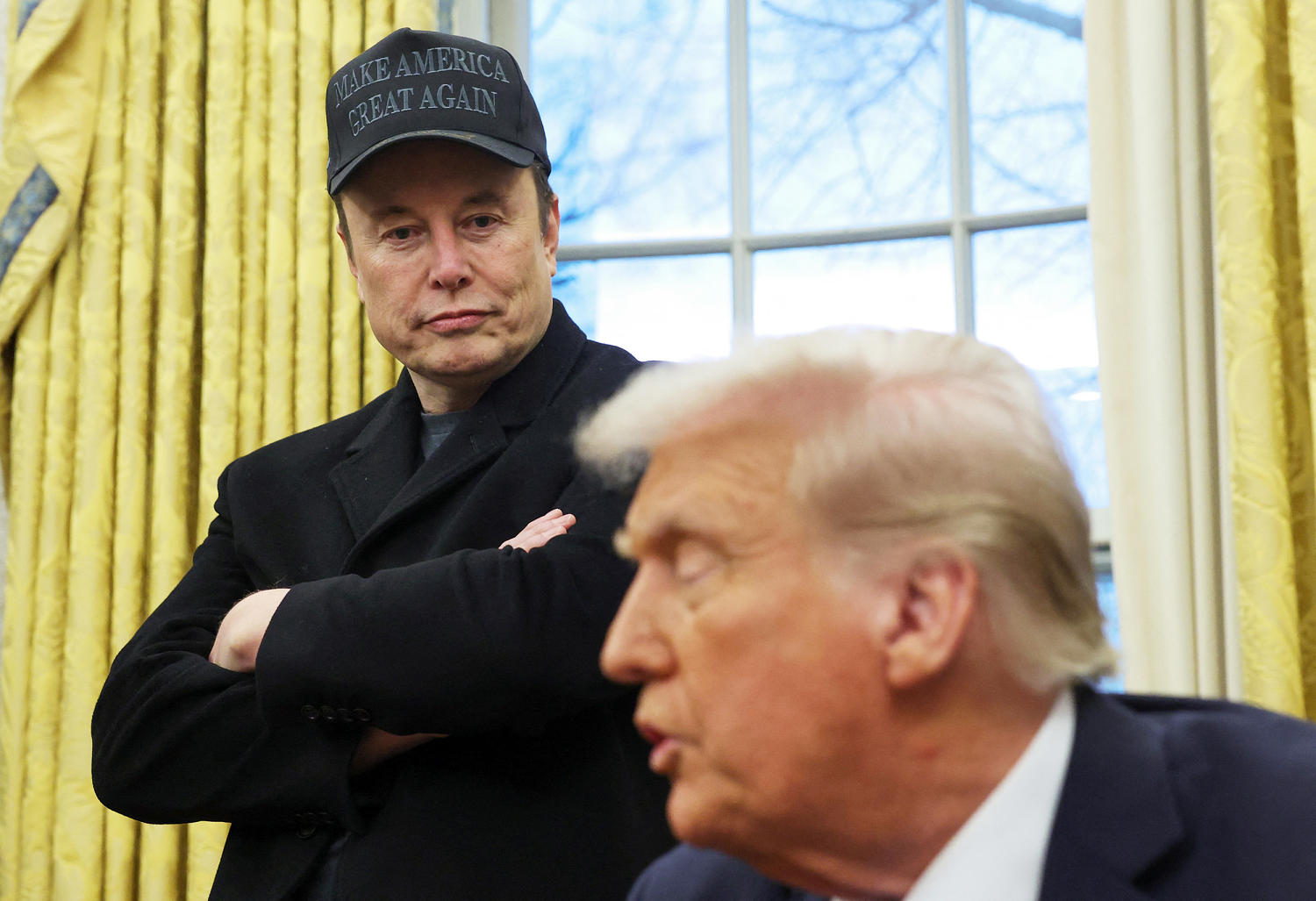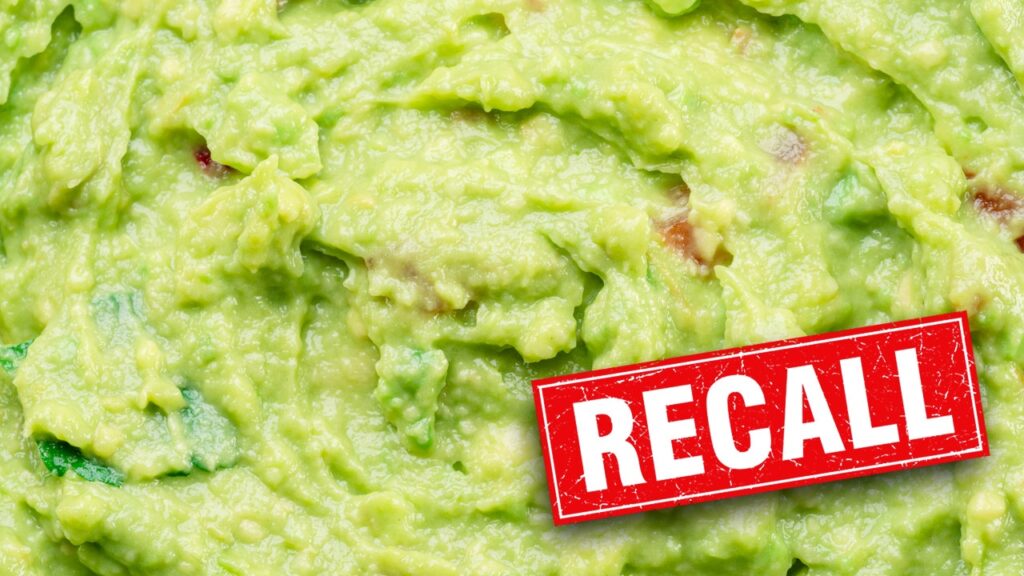
James Fishback said the whole idea came to him in a recent dream: Send American taxpayers dividend checks with whatever money Elon Musk’s Department of Government Efficiency saves as it dismantles parts of the federal government.
The idea took off on Tuesday when Fishback tweeted about it and Musk responded, pledging to share the idea with Trump. The president himself promoted the specifics of Fishback’s idea from the stage at the FII Priority Summit in Miami Beach on Wednesday.
“There’s even under consideration a new concept where we give 20% of the DOGE savings to American citizens, and 20% goes to paying down debt, because the numbers are incredible, Elon,” Trump said.
But if Trump follows through with the plan as Fishback envisions it, low-income Americans may not benefit.
Fishback, CEO of the investment firm Azoria who briefly worked with former presidential candidate Vivek Ramaswamy as DOGE was just getting off the ground, told NBC News in an interview that he awoke from that dream and, working with the lead researcher at his firm, composed a brief proposal to send millions of American households checks.
“We fleshed this thing out in about two and a half hours,” Fishback said Wednesday. “We sent it to [White House chief of staff] Susie [Wiles], sent it to some folks in the admin, sent it to some folks at Treasury, and here we are a day or so later, with it being shared with President Trump from Elon. And so it’s exciting.”
The episode illuminated the speed with which Musk can help draw the president’s attention to seemingly random ideas — even one from a little-known 30-year-old investor — that are floating around on his social media platform X.
Something like a “DOGE dividend” wouldn’t be an entirely foreign concept to Trump; it follows the playbook of a pandemic-era program from his first term. Then, the government sent direct payments to Americans with the president’s name attached.
“The president of the United States should sign the checks, and the checks should include the word DOGE, very simply, because we have to be honest,” Fishback said, adding: “If I’m the CEO of Azoria and I cut our employees a check every month, my name is on it. President Trump is the leader of the country, the duly elected president of the United States. His name should be on the checks. As should DOGE, because that is what’s responsible for these savings.”
The difference during the pandemic was that people who made below a certain amount all received the checks.
In his proposal, Fishback starts from the presumption that DOGE will achieve $2 trillion in cuts to the government. He takes 20% of those savings, or $400 billion, and divides them among 79 million taxpaying households, to receive $5,000 each. Importantly, the rebate would be sent only to households that are net-income taxpayers — people who pay more in taxes than they get back — with lower-income Americans not qualifying for the return. According to the Pew Research Center, most Americans who have an adjusted gross income of under $40,000 pay effectively no federal income tax.
Since the dividend checks would be funded by dollars that have already been appropriated rather than the deficit-financed stimulus checks, Fishback writes, they would not worsen inflation.
“The DOGE Dividend is different from past stimulus checks (e.g. 2021 American Rescue Plan) because only tax-paying households receive it,” he writes. “Tax-paying households are more likely to save (not spend) a transfer payment like the DOGE Dividend as consumption is a lower share of their income. … There is nothing inflationary about paying off debt, saving for emergencies, or investing in college or retirement. In fact, debt paydowns are actually deflationary.”
In an interview, Fishback said the dividend only going to households above a certain income threshold should ease concerns about any inflationary pressure the rebates would cause, adding that the pandemic-era checks were sent “indiscriminately.”
“A lot of low-income households essentially saw transfer payments of 25 to 30% of their annual … income,” Fishback said, adding, “This exclusively goes to households that are net-payers of federal income tax, and what that means is that they have a lower propensity to spend and a higher propensity to save a transfer payment like the DOGE dividend.”
Yet even among Republicans, there is no consensus for sending Americans checks with money DOGE is able to save — the total amount of which is, so far, unclear. The group claims on its website that it has saved $55 billion so far, but some claims about its work have not stood up to the most basic scrutiny. In one example, DOGE claimed to have saved $8 billion from a single canceled contract at the Department of Homeland Security. It turns out, that contract clearly stated it was for just $8 million.
Musk initially pledged that DOGE would find $2 trillion in savings before the middle of next year, but has softened his expectations since.
“We have to actually figure out if any money is saved at all before promising people checks in the mail,” said Mark Zandi, the chief economist at Moody’s Analytics, adding: “I thought this was about taking a crack at reducing our deficit. So if you give a dividend, that certainly doesn’t help in that regard. It just feels like putting the cart way before the horse. I’ve got the cart. I don’t even see the horse yet.”
As for the idea that the rebates will be reserved for American households above a certain income threshold, Zandi agreed that such a model would lead to a higher rate of receivers saving the payments rather than spending them immediately.
“We’re slicing a hair,” he said. “These are things really on the margin. The broader point is … DOGE has got a long way to go here to see if DOGE saves anything and ultimately is a benefit for the economy or not before you start talking about dividend checks.”
Asked about the idea at the Conservative Political Action Conference on Thursday, House Speaker Mike Johnson, R-La., did not appear warm to the proposal.
“Well, look. I mean, politically that would be great for us, you know. It gives everybody a check,” Johnson said. “But if you think about our core principles, right, fiscal responsibility is what we do as conservatives. That’s our brand. And we have a $36 trillion federal debt, we have a giant deficit that we’re contending with. I think we need to pay down the credit card, right?”
From the stage at CPAC that same day, Musk said he discussed the proposal with Trump and that the president is on board. Musk, the world’s richest man who has become perhaps the single most influential presidential adviser, said “it sounds like … that’s something we’re going to do.”
The White House declined to comment on the proposal.
Fishback traveled to Washington this week and said he had a number of promising conversations on the proposal with stakeholders, though he would not divulge with whom. He did post a video showing him having a brief conversation with Musk on Thursday.
“Now look, for folks who want to criticize this plan and say, well, DOGE would never deliver $2 trillion in total savings, we disagree, but let’s just assume that they’re right on that,” Fishback said. “Let’s say it’s only $1 trillion. OK, so then the check goes from $5,000 to $2,500. Let’s assume that it’s only $500 billion. … Then the check is $1,250. That’s real money.”
“I’ve got to tell you the truth here. It’s not necessarily about the dollar amount,” he added. “It’s about the symbolism of the government sending money back in the form of restitution to compensate hardworking Americans, whether they’re in East Baltimore or whether they’re in East Palestine that the government misused and abused their hard-earned tax dollars.”
But as Zandi noted, the cuts themselves do not come free of any potential economic consequences.
“It’s not like there’s a free lunch here,” he said. “So if you fire people, that’s going to be a hit to the economy. That has a cost. You’ve got to see exactly what the fallout of all this is on the broader economy, and that’s just the near term. What about the longer term? You’re making the assumption here, at least the implicit assumption, that the jobs you’re cutting and the work you’re scaling back really was not important, [that] there was no benefit from those folks working in the FAA or USAID or the FTC and FDA.”
“That’s a pretty strong position to take that these jobs have no benefit and no importance in the long run, that they’re not doing things that are important to the well functioning of our economy and the nation,” he added. “I don’t pretend to know, but I don’t think anyone else knows that either.”



